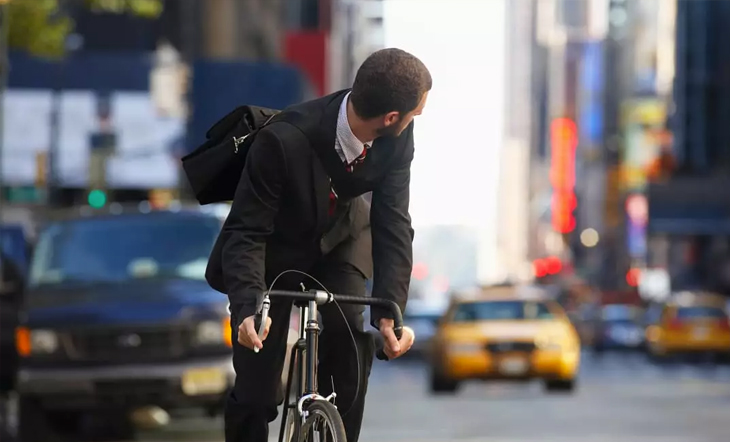
12 Ways To Reduce Bicyclist Traffic Deaths
— A new study by the Governors Highway Safety Association reports that bicycle traffic deaths increased by 12.2 percent in 2015 — the largest uptick in two decades. The GHSA report includes 30 actionable steps that can be taken by state agencies to reverse this trend, as well as tips to help drivers and cyclists share the road safely.
According to the GHSA’s “A Right to the Road: Understanding & Addressing Bicyclist Safety,” 54 percent of bicyclists killed in traffic collisions in 2015 were not wearing a helmet. Drawing on data collected by the National Highway Traffic Safety Administration, the study also reveals that adults account for 88 percent of bicyclist fatalities, with the average victim being a 45-year-old male. The GHSA report provides these 12 tips to help drivers and cyclists travel safely, emphasizing the importance of following road rules and being alert:
For Bicyclists
- Always ride in the same direction as traffic flow.
- Stop at red lights and stop signs — traffic signs and signals apply to bicyclists, too.
- Be predictable by signaling your intentions and only change lanes when it is safe to do so.
- When riding at night, use a front and rear light to make yourself visible.
- Wear a helmet to reduce the risk of injury.
- Slow down and take care around people walking on sidewalks and in crosswalks.
- Be alert. Put your cellphone away, keep your eyes on the road, and watch for people driving and walking.
For Drivers
- Slow down. Drive at or below the posted speed limit. Be alert for people walking, bicycling, in wheelchairs or on skateboards.
- Look twice for people biking or walking before making a turn. Always come to a complete stop before turning right on red.
- Allow at least 3 feet when passing people on bikes.
- When there is not enough room for a bike and a car to safely ride side-by-side, bicyclists are allowed to use the entire lane. Change lanes and pass only when it is safe to do so.
- Be alert. Distracted driving endangers everyone, including bicyclists and pedestrian.
In addition to new statistics, the GHSA report offers countermeasures that State Highway Safety Offices can take to reduce bicycle traffic deaths. The so-called three “E” approach — engineering, education and enforcement — recommends infrastructure improvements such as adding bike lanes and more advanced training for law enforcement officers. ”While engineering solutions are vital, states and communities cannot solely build their way out of the problem,” said GHSA Executive Director Jonathan Adkins, in a statement. “These changes should be accompanied by education and enforcement to be most effective.”
